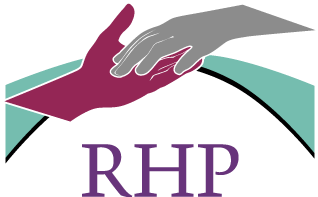Regional Health Providers offers a treatment program for assisted recovery from narcotic addiction as well as nicotine, sedative and alcohol dependence in the privacy and convenience of an office setting. Our medical doctors approach addiction in multiple ways including:
- Pharmacological regimen and medication specifically geared towards relief of physical symptoms of withdrawal and reduction of cravings typical in the disease of addiction
- Psychosocial exploration that provides our patients with helpful techniques in achieving and maintaining sobriety
- Inclusion of family members as part of the team involved in the recovery process of the patient
- Cognitive Behavior therapy to help patients overcome difficulties by recognizing and changing dysfunctional thinking
Our doctors strongly believe that addiction is primarily a health condition and not a character flaw. We are committed to helping our patients overcome their substance abuse and lead productive fulfilling lives.
Types of Addiction Treatment
Narcotic Dependence:
We care for a large variety of opioid dependent patients ranging from those who have always used for a recreational purpose to those who have become unknowingly addicted to narcotics because of long term opioid therapy given by other physicians to treat and relieve their pain. The result is the same: narcotic dependence and all patients will receive the same attention and guidance in their assisted recovery.
Narcotic Dependence and Pregnancy:
They also combine their dual specialty to manage pregnant women who seek treatment of their narcotic addiction and follow them along with the obstetrical team throughout their pregnancy. They will often guide the obstetrician when the woman is in labor about pain management and extend their expertise to the team taking care of the baby in the neonatal intensive care unit.
Alcohol Dependence:
Our team of physicians offer outpatient treatment for alcoholism after thorough evaluation of the risks of withdrawal and need for detoxification first in specific cases. The evaluation is based on a physical exam, blood work and questionnaire given to the patient.
The treatment is again a combined approach including psychological counseling along with oral or injectable medications.
We will also provide guidance in attending Alcoholic Anonymous meetings because scientific studies are very convincing that one important difference between patients who relapse and those with sustained sobriety is attendance to AA meetings.
Suboxone Treatment Process:
Suboxone is a very effective therapy to overcome opioid addiction when combined with counseling. It will control withdrawal symptoms as well as cravings for opiates.
2 Million Americans suffer of opioid addiction.
Prescription painkillers such as Vicodin, Percocet, Opana, Dilaudid or Oxycontin belong to that group as well as heroin.
EVALUATION & INDUCTION:
WEEK 1: The first visit will be 45 minutes long and include a physical examination, some blood and urine tests and the full history that led to your narcotic dependence.
It will include a detailed guidance into your home induction of Suboxone therapy.
We encourage patients to keep a record of their physical and emotional status during that initial week and to be in touch with us via phone or email with questions, concerns or unusual reactions they may experience during that time.
WEEK 2: You will return 7 days later for a reevaluation of your symptoms, cravings, side effects. We will discuss your quality of sleep, mood and functioning over that first week.
We will address each problem and help resolve it and adjust the Suboxone dosage accordingly.
STABILIZATION:
WEEK 3-4: We will together fine tune the initial Suboxone therapy and explore more in depth the psychosocial issues surrounding your addiction and address the various parts of your life that may have been affected by your substance use such as work, finances, relationship, health and legal issues.
MAINTENANCE:
That phase varies greatly because it is contingent upon the severity and length of your disease and the quality of your support system and environment. It will also depend on your motivation and commitment to counseling and supportive therapy. It is only after you learn to develop strong coping skills and healthy leisure activities that you will be able to approach the next phase without fear.
TAPERING:
The majority of our patients will let us know when they are ready to embark in this last phase. We will guide them through a very gentle process that should be as painless as possible.
Some of our patients will feel they need to stay on Suboxone long term either to manage their chronic pain or because of strong fears that they would relapse without it. For those few patients we will support them and encourage them to stay at the lowest maintenance dosage to accomplish their goal.
We always individualize our Suboxone treatment and tailor it to each of our patient’s needs.


